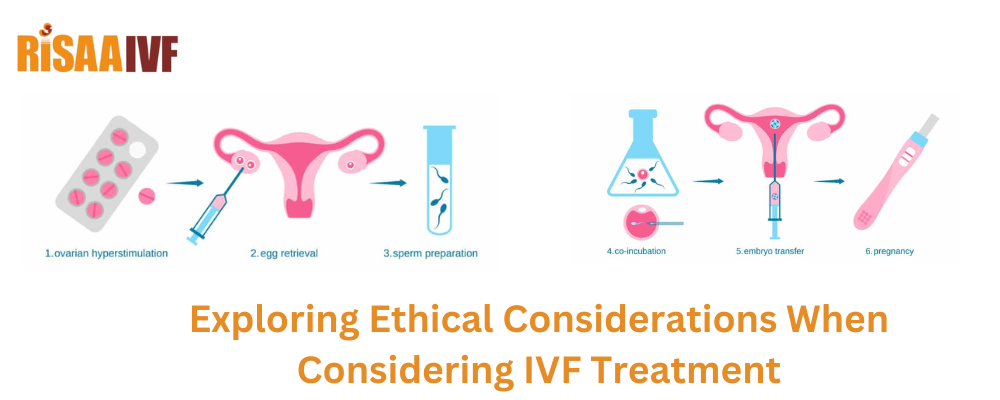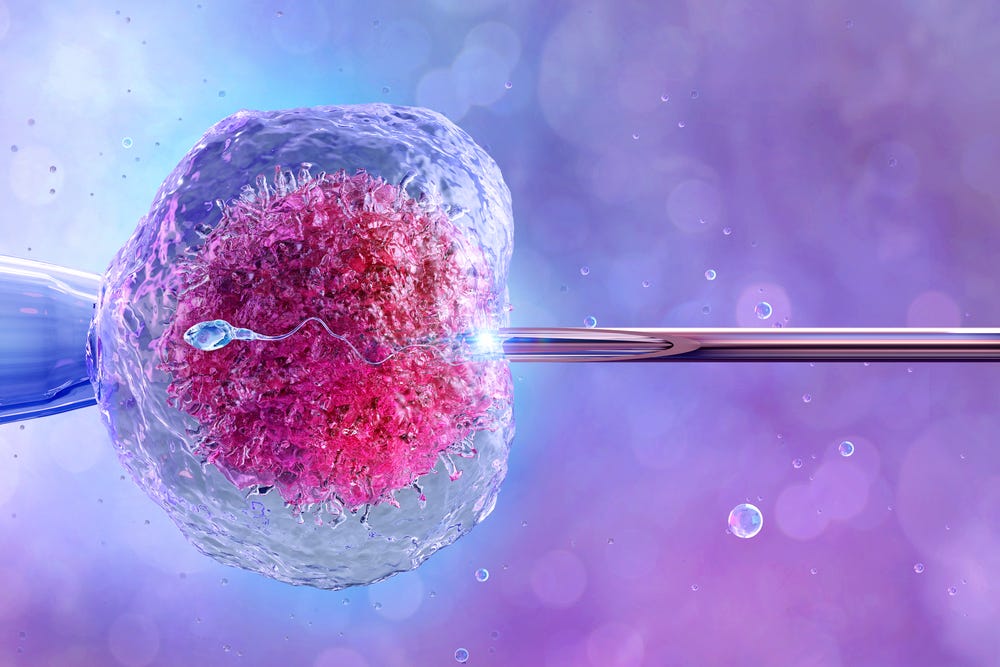
Maintenance Dose IVF: Your Guide to a Lesser-Known Fertility Journey
April 2, 2025Personal Beliefs and Ethics of IVF Treatment: A Deep Dive into the Emotional, Moral, and Practical Sides
In vitro fertilization (IVF) is a life-changing option for people dreaming of starting a family but facing fertility challenges. It’s a topic that sparks curiosity, hope, and sometimes heated debates. What’s it really like to go through IVF? How do personal beliefs shape decisions about it? And what ethical questions keep popping up as science pushes boundaries? This article isn’t just about the basics—it’s a journey into the hidden corners of IVF, from secret fears and quirky habits of those who’ve been through it to the moral dilemmas that don’t always make headlines. We’ll explore it all with fresh insights, real stories, and the latest research to help you understand this complex world.
What Is IVF, and Why Does It Stir Up So Much Emotion?
IVF is a medical process where doctors take an egg from a woman, fertilize it with sperm in a lab, and then place the resulting embryo back into the uterus to grow into a baby. It sounds simple, right? But behind those steps lies a rollercoaster of emotions—hope, fear, joy, and sometimes heartbreak. For many, it’s not just a procedure; it’s a deeply personal quest to create life.
Why It’s More Than Just Science
- The Waiting Game: Couples often talk about the nail-biting two-week wait after an embryo transfer, obsessively checking for signs of pregnancy.
- Unexpected Hobbies: Some people pick up odd habits to cope—like knitting baby booties before they even know if IVF worked or binge-watching cooking shows to distract from the stress.
- Hidden Privacy Moments: One woman shared how she’d whisper to her embryos in the lab dish, calling them “little fighters,” hoping it’d give them strength.
IVF isn’t just about biology—it’s about dreams. That’s why personal beliefs and ethics get tangled up in it. For some, it’s a miracle; for others, it’s a moral puzzle.

How Personal Beliefs Shape IVF Choices
Everyone brings their own values to the table when deciding on IVF. Your background, faith, and life experiences can turn it into a deeply personal journey.
Faith and Fertility: A Tricky Balance
- Religious Views: Some Christians see IVF as a gift from God to help families grow, while others worry it messes with nature. One Catholic friend told me she struggled because her church says embryos are sacred from the start, and IVF often involves extras that don’t get used.
- Cultural Twists: In some communities, there’s pressure to keep fertility struggles hush-hush. A woman from a tight-knit town said she hid her IVF appointments, pretending they were “work trips,” because she didn’t want the gossip.
Quirky Beliefs People Don’t Talk About
- Lucky Charms: One couple swore eating pineapple after embryo transfer boosted their chances (there’s even a small 2023 study suggesting pineapple’s bromelain might help implantation!).
- Secret Rituals: Another person admitted to wearing the same “lucky socks” to every appointment—washed, of course, but never swapped out.
Your beliefs don’t just guide big decisions—they sneak into the little moments, too.
Practical Tip: Reflect Before You Leap
✔️ Write down what matters most to you—faith, family, or even superstitions. It’ll help you feel grounded when the process gets overwhelming.
❌ Don’t let others’ opinions push you into a choice that doesn’t feel right.

The Ethical Questions IVF Raises
IVF isn’t just a personal choice—it’s an ethical minefield. Let’s break down the big questions people wrestle with.
Are Embryos People? The Debate That Won’t Quit
The moment an egg meets sperm, some say it’s a human life. Others argue it’s just a cluster of cells until later. This clash fuels huge ethical debates:
- Extra Embryos: IVF often creates more embryos than needed. What happens to them? Freeze them? Donate them? Discard them? A 2024 survey found 60% of Americans feel uneasy about throwing away embryos, yet clinics do it daily.
- Real Story: A mom I know cried when she learned her unused embryos were destroyed. “It felt like losing a chance at a child,” she said.
Who Gets to Use IVF?
- Single Parents and Same-Sex Couples: Some say IVF should only be for married, opposite-sex couples. Others cheer its use for anyone wanting a family. In 2023, the American Society for Reproductive Medicine said clinics shouldn’t discriminate based on marital status or orientation.
- Age Limits: Should a 60-year-old woman do IVF? It’s rare, but it happens—and it sparks arguments about what’s “natural.”
Money and Fairness
IVF isn’t cheap—around $12,000-$15,000 per cycle in the U.S., per 2025 data. That raises questions:
- Is It Only for the Rich?: A single mom told me she sold her car to afford one round. “It’s not fair that money decides who gets a baby,” she said.
- Insurance Gaps: Only 19 states mandate some IVF coverage, leaving many scrambling.
Expert Insight
Dr. Jane Miller, a fertility ethicist, says, “IVF forces us to ask: Who deserves to be a parent, and who gets to decide? It’s not just science—it’s society.”
Lesser-Known Ethical Corners of IVF
While embryos and access get the spotlight, other ethical twists deserve a closer look.
The Donor Dilemma
Using donor eggs or sperm adds layers:
- Privacy vs. Identity: Kids born from donors might wonder, “Who’s my real family?” A 2024 study showed 70% of donor-conceived adults want to know their biological roots.
- Payment Problems: Donors can earn $5,000-$10,000 per cycle. Is that fair compensation or exploitation?
Surrogacy Secrets
When someone else carries the baby:
- Bonding Worries: Surrogates sometimes get attached. One surrogate shared, “I sang to the baby every night—it was hard to let go.”
- Money Motives: surrogates make $30,000-$50,000. Critics ask if it’s a job or a calling.
Gene Editing: The Next Frontier
New tech like CRISPR could let parents tweak embryos to avoid diseases—or pick traits. A 2025 report warned it’s “ethically shaky” because we don’t know the long-term effects.
Actionable Advice
✔️ If using donors or surrogates, talk openly about expectations—write it down if you can.
❌ Don’t rush into gene editing—it’s still experimental and risky.
The Emotional Side Fans Want to Know
IVF isn’t just needles and labs—it’s a wild emotional ride. Here’s what people don’t always share.
Hidden Struggles
- Guilt Trips: One dad said he felt “less of a man” because his sperm count was low, even though IVF worked.
- Jealousy Jabs: Seeing pregnant friends can sting. A woman confessed she skipped baby showers during her IVF years.
Surprising Joys
- Tiny Wins: Celebrating a good ultrasound feels like winning the lottery.
- Community Bonds: Online IVF groups swap tips—like eating warm socks to “cozy up” the uterus (no science, just fun!).
Data Point
A 2024 study found 45% of IVF patients felt “emotionally drained” but also “hopeful”—a bittersweet mix.
Practical Steps for Navigating IVF Ethics
Ready to dive in? Here’s how to tackle IVF with your beliefs and ethics intact.
Step 1: Know Your Values
- Ask yourself: What’s non-negotiable? For some, it’s keeping all embryos; for others, it’s avoiding donors.
- Tip: Chat with a trusted friend or pastor to sort it out.
Step 2: Research Your Options
- Freeze or Donate?: Freezing embryos costs $500-$1,000 a year. Donating them to research or other couples is free but emotional.
- Natural IVF: Uses fewer drugs and embryos—less ethically messy for some.
Step 3: Talk to Your Doctor
- Questions to Ask:
- How many embryos will you make?
- What happens to extras?
- Can I limit transfers to avoid multiples?
Step 4: Plan Financially
- Save Smart: Start a “baby fund” early—every $100 helps.
- Look for Grants: Groups like BabyQuest offer up to $15,000 for IVF.
Expert Tip
Fertility coach Sarah Clark advises, “Ask your clinic for a clear embryo plan. It cuts stress and keeps your values in check.”

Latest Research: What’s New in 2025?
Science keeps moving, and 2025 brings fresh IVF insights.
Breakthroughs
- Better Freezing: A new technique called “vitrification 2.0” boosts embryo survival rates to 95%, per a March 2025 study.
- AI Helpers: AI now predicts which embryos are strongest, cutting guesswork (90% accuracy, says a 2025 trial).
Ethical Updates
- Embryo Rights: Some states are debating laws to call embryos “legal persons,” which could limit discarding them.
- Cheaper IVF: Low-cost clinics are popping up, charging $5,000 per cycle—still pricey, but a start.
Takeaway
Stay curious—new options might align better with your beliefs.
Real Stories: IVF Through Others’ Eyes
Let’s hear from people who’ve been there.
Mia’s Journey
- Belief: “Life starts at conception.”
- Choice: She froze all extra embryos, hoping to use them later.
- Surprise: “I started painting tiny portraits of what I imagined they’d look like—it kept me sane.”
Jake and Leo
- Belief: “Family is what you make it.”
- Choice: This same-sex couple used a surrogate and donor eggs.
- Fun Fact: They threw a “welcome embryo” party with cupcakes shaped like cells!
Priya’s Twist
- Belief: “Money shouldn’t block parenthood.”
- Choice: She crowdfunded her IVF, raising $8,000.
- Secret: “I still light a candle every night for luck—old habits die hard.”
These stories show how beliefs bend and stretch with IVF.
Busting Myths About IVF Ethics
Misinfo floats around—let’s clear it up.
Myth 1: IVF Always Kills Embryos
- Truth: Not always. You can limit how many are made or freeze extras. A 2024 clinic report said 30% of patients now opt for “single embryo transfer.”
Myth 2: It’s Unnatural, So It’s Wrong
- Truth: “Natural” is tricky. Glasses and antibiotics aren’t “natural” either, but we use them. It’s about what feels right to you.
Myth 3: Only Desperate People Do IVF
- Truth: Nope—some choose it for timing (like freezing eggs young) or genetics (avoiding diseases).
How to Talk About IVF With Loved Ones
It’s tough to share. Here’s how to make it easier.
Tips for Opening Up
- Start Small: “We’re exploring IVF—thought you’d like to know.”
- Set Boundaries: “I’d rather not hear about miracles right now—just support.”
- Invite Questions: “Anything you’re curious about? I’ll explain.”
Handling Pushback
- If They Judge: “I get it’s not for everyone, but it’s our path.”
- If They Pry: “We’re keeping some details private—thanks for understanding.”
Fun Idea
Host a “fact night” with snacks—share IVF basics and swap stories.
The Future of IVF: Where Are We Headed?
IVF’s evolving—what’s next?
Predictions
- Affordable Access: Experts hope costs drop by 2030 with more competition.
- Ethical Rules: Global guidelines might standardize embryo handling.
- Tech Boom: Lab-grown eggs from skin cells? It’s in early trials!
Expert Voice
Dr. Sam Lee, a reproductive tech pioneer, predicts, “In ten years, IVF could be as common as a flu shot—but ethics will always lag behind.”
Your Turn: Join the Conversation
IVF is personal, messy, and fascinating. What do you think?
- Have you or someone you know done IVF? What shaped your choices?
- What ethical question bugs you most?
Drop a comment below—I’d love to hear your story or take on this. Let’s keep the chat going!